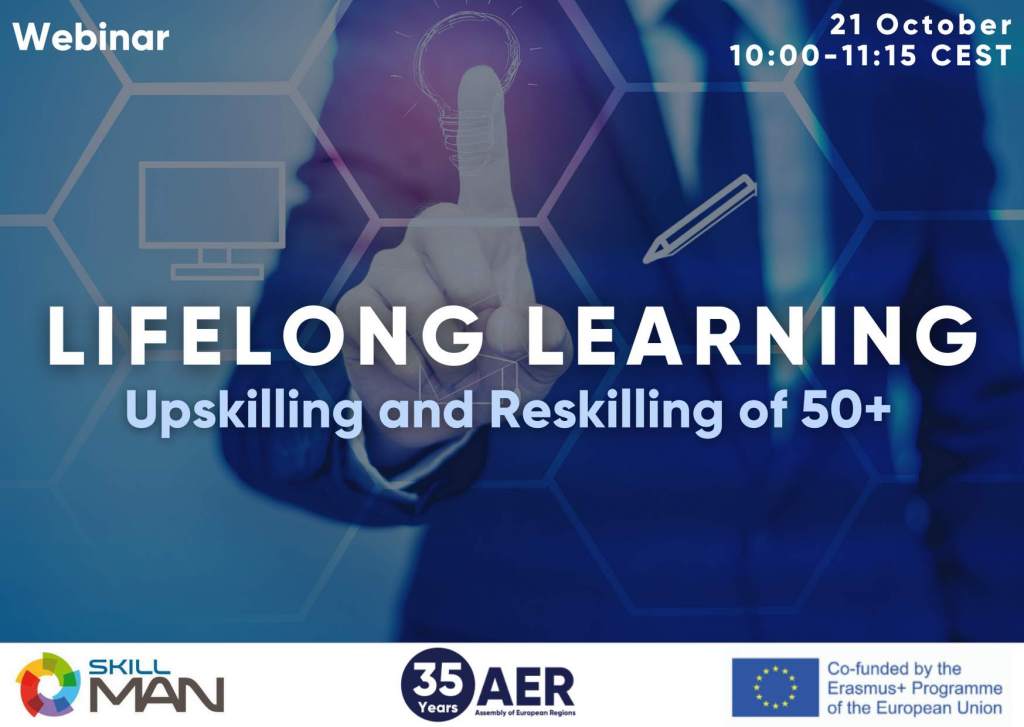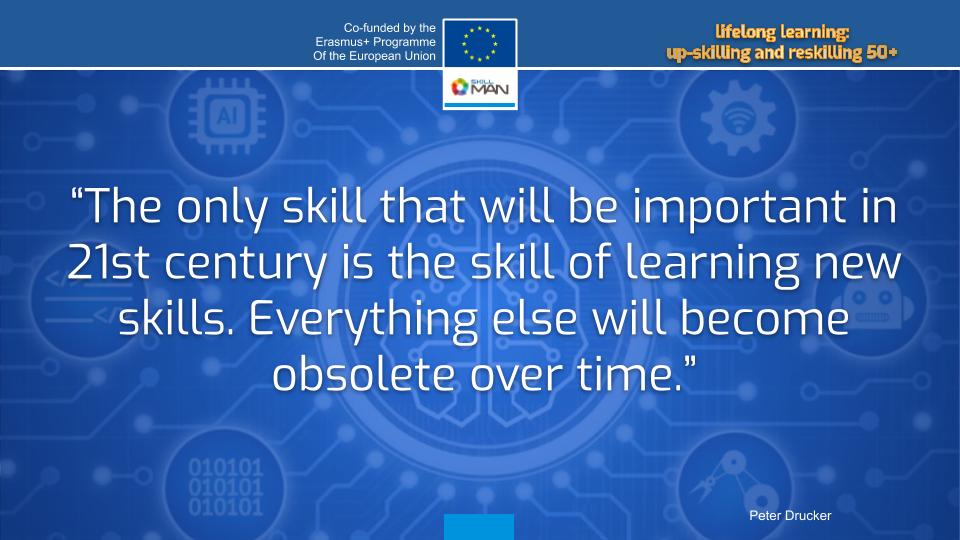
On October 21st, the Assembly of European Regions in cooperation with Skillman Alliance, hosted the “Lifelong learning: Upskilling and Reskilling of 50+” webinar. This was the sixth webinar on EU funding opportunities that are being organized by Skillman in collaboration with AER, under the Skillnet project framework (co-founded by the Erasmus+ Programme) in order to bring together experts in different fields linked to vocational education and training (VET) and establish relevant groups of collaboration for future EU project proposals.
The webinar presented examples of how regions address the need for reskilling and upskilling and provided insights on funding opportunities and EU programmes supporting life-long learning.
Rapidly changing labour markets
In the context of rapidly changing labour markets, the upskilling and reskilling of adults has become a priority. Technological changes and digitalisation require new skills, while many regions in Europe are faced with both an ageing population and labour and skills shortages.
Elena Romanini, Senior Project Manager at Skillman, emphasized that upskilling and reskilling of low skilled adults is one of the crucial challenges for policymakers and Education providers, underlined in the New European Skills Agenda. Ms Romanini shared recommendations for tackling mentioned issues: training teachers to deliver online courses, implementing micro-learning (holistic approach for skill-based learning and education which deals with relatively small learning units) and developing effective testing methods and certificates which will ensure that online training is valued in the labour market.
Regional experiences on upskilling and reskilling
The webinar highlighted two regional examples on upskilling and reskilling from AER member regions.
Michael Heaney, Chief Executive Officer at Údarás na Gaeltachta, provided participants with valuable insights into the programmes they are running as a developing agency.
- Apprenticeship Scheme which allows people from the Gaeltacht regions, who are fluent in the Irish language, to apply for two different types of apprenticeships: – Trade Apprenticeships (Carpentry, Electrical etc.) – New Age Apprenticeships (Lab Technicians, Software Analysts etc.)
- Graduate Development Scheme that allows a Gaeltacht graduate to gain experience with a Gaeltacht based company.
- Tourism Management Scheme which supports a range of strategic tourism projects in the Gaeltacht regions.
- Media Training & Skills Development scheme which aims is to support production companies to develop the skills and talent of their production staff.
Furthermore, people who are over 50 oftentimes are being discriminated against in terms of employment and there is a consistent association between ageing and reduced participation in learning. In this context, our third speaker, Ana Gale, Director of Uciliste Studium, highlighted the relevance of working on motivation as the key success factor for the enrolment in education programmes in the 50+ age group. It is for this reason, that Uciliste Studium always organizes motivational workshops before the beginning of any training. Ms. Gale also pointed out that upskilling and reskilling can be funded through European Social Fund, Interreg and Erasmus+ programmes. 
The only important skill of the 21st century
Speakers agreed that the only skill that will be important in the 21st century is the skill of learning new skills! Sharing personal stories is instrumental in generating motivation for upskilling and reskilling: it is not just the professional perspectives that are improved but also personal relations.